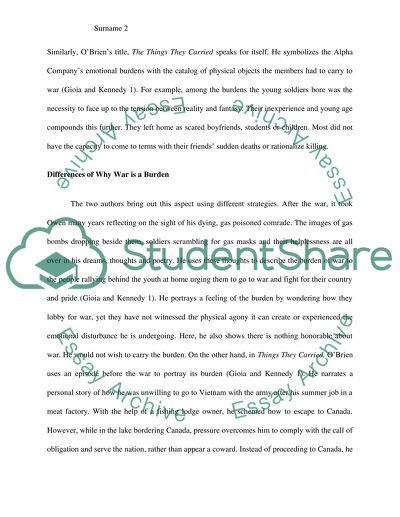Cite this document
(“Dulce Et Decrum Est by Wilfred Owen and The Things They Carried by Tim Essay”, n.d.)
Dulce Et Decrum Est by Wilfred Owen and The Things They Carried by Tim Essay. Retrieved from https://studentshare.org/literature/1462587-dulce-et-decrum-est-by-wilfred-owen-and-the-things-they-carried-by-tim-obrien
Dulce Et Decrum Est by Wilfred Owen and The Things They Carried by Tim Essay. Retrieved from https://studentshare.org/literature/1462587-dulce-et-decrum-est-by-wilfred-owen-and-the-things-they-carried-by-tim-obrien
(Dulce Et Decrum Est by Wilfred Owen and The Things They Carried by Tim Essay)
Dulce Et Decrum Est by Wilfred Owen and The Things They Carried by Tim Essay. https://studentshare.org/literature/1462587-dulce-et-decrum-est-by-wilfred-owen-and-the-things-they-carried-by-tim-obrien.
Dulce Et Decrum Est by Wilfred Owen and The Things They Carried by Tim Essay. https://studentshare.org/literature/1462587-dulce-et-decrum-est-by-wilfred-owen-and-the-things-they-carried-by-tim-obrien.
“Dulce Et Decrum Est by Wilfred Owen and The Things They Carried by Tim Essay”, n.d. https://studentshare.org/literature/1462587-dulce-et-decrum-est-by-wilfred-owen-and-the-things-they-carried-by-tim-obrien.


